
Co-hosted by:

This event has ended.
Following the event, click on the green name of the presenter / presentation to download the presentation.
| Tuesday, June 11, 2019 |
|---|
| 9:00 am |

Introduction to OpenADR
Rolf Bienert, OpenADR Alliance
Get a high-level overview of the OpenADR profile standard, why it is important in today’s smart grid environment, some current use cases for DERs, EVs and Energy Storage in addition to DR?, and where to get the tools and help to build, test, and certify products.
|
| 11:00 am - 12:00 pm |
Lunch in Exhibit Area
|
| 12:00 pm |
OpenADR Alliance Member Meeting
(open to current & prospective members)
Business meeting and overview of recent and upcoming activities of this non-profit corporation. The OpenADR Alliance was created to foster the development, adoption, and compliance of the OpenADR standard. The Alliance helps utilities manage the growing pool of DERs, which includes renewable energy, energy storage, demand response, and electric vehicle charging. The OpenADR standard supports communications to all DER assets to manage changes in load shapes, and energy and power characteristics. Learn more about the Alliance's mission and organizational structure at www.openadr.org/overview.
|
| 2:00 - 5:00 pm |
Small Group Tours
(open to all registrants at no additional cost, subject to availability; RSVP your choice of tour to [email protected])
Target Corporation Retail Location Site Visit
Address provided with RSVP confirmation (2.5 miles from Pacific Energy Center via BART transit or car)
Demonstration and overview of Target Corporation’s broader demand response program participation as well as experience with OpenADR2.0 in Pacific Gas and Electric Company and other markets and programs. Space will be limited.
or
Target Corporation Open House
115 4th Street, San Francisco, CA 94103 (walking distance from Pacific Energy Center)
Located in America’s tech hub of San Francisco, Target Open House is a smart home demonstation site open to the general public. Start in the Interactive House to personalize your home, Stop by the Garage to see what’s new, and Finish up at the Playground to test things out. Details at targetopenhouse.com.
or
No longer accepting RSVPs for.... Tour of Lawrence Berkeley Laboratory's FLEXLAB
Address provided with RSVP confirmation (free shuttle from Berkeley downtown BART transit station)
The most advanced building efficiency test facility in the world, FLEXLAB® lets users develop and test energy-efficient building systems individually or as an integrated system, under real-world conditions. Our test beds can monitor and assess heating, ventilation, air conditioning, lighting, windows, building envelope, control systems, and plug loads, in any combination. They also offer an unparalleled ability to research building-to-grid distributed energy resource technologies and controls. Users can test alternatives and collect highly accurate, validated performance data for use in building design, utility customer incentive programs and integration into innovative operations software. Learn more at flexlab.lbl.gov/
|
| 5:00 - 6:00 pm |

Member Reception at The Chíeftaín Irish Pub
198 Fifth Street, San Francisco (half-block from Pacific Energy Center)
Bring your symposium name badge if you participate in Tuesday's activities, or mention you're with OpenADR for complimentary beverages at an authentic pub .
|
| Wednesday, June 12, 2019 |
|---|
| 7:30 - 8:00 am |
Breakfast in Exhibit Area
|
| 8:00 am |
Welcoming Remarks
 Albert Chiu Albert Chiu
Pacific Gas and Electric Company and OpenADR Board Member |
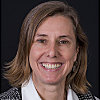 Mary Ann Piette Mary Ann Piette
Lawrence Berkeley National Laboratory and OpenADR Board Member |
|
|
Workshop 1: Where is OpenADR Today: Protocol and Code Landscape
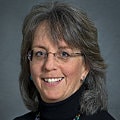 Co-Chair Janie Page Co-Chair Janie Page
Lawrence Berkeley National Laboratory |
 Co-Chair Gabriel Taylor Co-Chair Gabriel Taylor
California Energy Commission |
|
| 8:30 am |
Application Snapshots
Snapshot presentations with roundtable discussion of where OpenADR is being applied globally to meet today's system and market requirements. Topics to include:
 Impact of California Title 24 Energy Code Impact of California Title 24 Energy Code
Gabriel Taylor, California Energy Commission
Discover how OpenADR is specified in the California Title 24, Part 6, Energy Code; how demand responsive behavior is currently required in the code; and how California renewable energy targets will require robust demand side optimization and communication in the future.
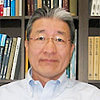 Technology, Application, and Standardization for OpenADR in Japan Technology, Application, and Standardization for OpenADR in Japan
Chuzo Ninagawa, Smart Grid Demand Control Joint Laboratory and Faculty of Engineering at Gifu University
OpenADR is now a hot topic in the new energy service technologies in the international markets. This talk introduces research studies and application standardization activities on Fast DR aggregation using OpenADR in Japan. Learn how OpenADR is being studied, applied and standardized in Japan.
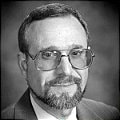
Open Protocols for DER Communications: Where Does OpenADR Fit
James Mater, QualityLogic
QualityLogic is actively working with the OpenADR, IEEE 2030.5 and IEC 61850 standards and has analyzed the IEEE 1815 (DNP3) protocol for DER communications. As part of our work with OpenADR, EPRI and other partners, we have analyzed the DER deployment models and communications requirements and then looked at the four leading protocol standards to assess how each addresses them. This presentation looks closely at how well OpenADR addresses DER management and what OpenADR’s direction could be for future DER management communications.
|
| 9:30 am |
Roundtable Discussion
|
| 10:00 - 10:30 am |
Refreshment Break in Exhibit Area
|
|
Workshop 2: Field Tests and Deployments
 Co-Chair Albert Chiu Co-Chair Albert Chiu
Pacific Gas and Electric Company |
 Co-Chair Jim Boch Co-Chair Jim Boch
IPKeys
|
|
| 10:30 am |
Case Study Snapshots
 Residential Thermostat and Water Heater Field Test Residential Thermostat and Water Heater Field Test
Tristan de Frondeville, SkyCentrics
Lessons learned from an OADR 2.0b deployment for Tucson Electric Power and EPRI to dispatch Demand Response signals to ecobee thermostats and A.O. Smith water heaters in residential homes leveraging SkyCentrics' head-end applications to manage DER assets and using SkyCentrics' OpenADR 2.0b certified cloud VEN to communicate with a Smarter Grid Solutions OADR 2.0b VTN.
 Commercial and Industrial Deployments for Fast Response Grid Services Commercial and Industrial Deployments for Fast Response Grid Services
Jim Boch, IPKeys
Lessons learned from OpenADR 2.0b deployments in fast response grid services, including Synchronous Reserve and Regulation, using the OpenADR 2.0b certified VTN, Energy Interop Server & System (EISS™) and VEN (EISSBox 3). The pilot participants – Walmart, PJM Interconnection, Lawrence Berkley National Laboratory, and Schneider Electric – succeeded in using the OpenADR 2.0b profile for ancillary services and regulation signaling.
 Distributed Energy Resource Management System (DERMS) Deployments Distributed Energy Resource Management System (DERMS) Deployments
Varun Mehra, EnergyHub
Discover how OpenADR is leveraged in EnergyHub's DERMS system deployed by electric and gas utilities across North America to communicate with thermostats, water heaters, electric vehicle chargers, solar inverters, and more.
 OpenADR Experience in Utility Programs Outside California OpenADR Experience in Utility Programs Outside California
Debyani Ghosh, Navigant
Overview of utility DR programs at Austin Energy, NV Energy, and others outside California to illustrate how OpenADR has been considered in these programs. The presentation will provide utility OpenADR deployment experiences in mature programs as well as how OpenADR considerations are being incorporated in designing and planning of new program offers, not only from a DR standpoint, but also from an integrated IDSM perspective.
|
| 12:00 - 1:00 pm |
Lunch in Exhibit Area
|
|
Workshop 3: Electric Vehicles, Excess Supply, and Storage Integration
 Co-Chair Carl Besaw Co-Chair Carl Besaw
Southern California Edison |
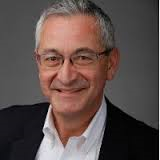 Co-Chair Mark Martinez Co-Chair Mark Martinez
Southern California Edison |
|
| 1:00 pm |
Utility Snapshots
 Southern California Edison's Charge Ready DR Pilot Southern California Edison's Charge Ready DR Pilot
Carl Besaw, Southern California Edison
Results and lessons learned from a pilot program running from 2018-2019 that uses EV charging stations as a DR resource with OpenADR 2.0b.
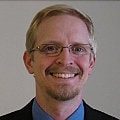  Pacific Gas & Electric Company's Excess Supply Program Pacific Gas & Electric Company's Excess Supply Program
Jonathan Burrows, Pacific Gas and Electric Company with Beth Reid, Olivine
Learn about this demonstration of the capabilities of demand-side resources to consume or decrease load as a service to the grid to address intermittency due to oversupply of renewables generation as distributed generation accelerates. The program investigates the ability of residential and commercial customers to help in times of excess supply to increase their energy usage when it is beneficial to the grid.
 Southern California's Residential Storage Demonstration Southern California's Residential Storage Demonstration
Mark Martinez, Southern California Edison
This project is leveraging the utility's previous battery experience with C&I customers to apply OpenADR to a residential customer storage technology.
|
| 2:00 pm |
Solution Provider Snapshots
 OpenADR to Enable Automated Response to Reduce the Oversupply of Renewables OpenADR to Enable Automated Response to Reduce the Oversupply of Renewables
Christine Riker, Energy Solutions
OpenADR has a variety of use cases from traditional load reduction DR to also increasing load during times of oversupply of renewables generation. Multiple customers have utilized the PG&E ADR technology incentive program to enable automatic participation in the PG&E Excess Supply Pilot. This discussion will focus on one campus solution and discuss two other recent projects automatically reducing the oversupply of renewables.
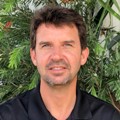 Aggregated PV Generation Curtailment and Beyond Aggregated PV Generation Curtailment and Beyond
Chris DeBone, E-Gear
Discover how OpenADR 2.0b is being used to command behind-the-meter PV generation curtailment under the Hawaiian Electric Customer Grid Supply Plus tariff aggregator option. Also learn the latest efforts in energy storage control using E-Gear's LOAD_DISPATCH command.
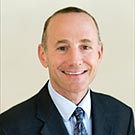 Accelerating EV Adoption with OpenADR Accelerating EV Adoption with OpenADR
Rick Kornfeld, Kitu Systems
Gain insight into the role of automated demand response to achieve mainstream adoption of EVs. Also, learn where OpenADR fits within a high-level EV solution architecture, and, as an example, how Kitu in Charge Ready supports the SCE program.
 Moving to the Edge of the Grid with OpenADR - Innovations in Charging and Grid ManagementClay Collier, ChargePoint Moving to the Edge of the Grid with OpenADR - Innovations in Charging and Grid ManagementClay Collier, ChargePoint
Learn how Alameda County, Calif. – one of the most populated counties in the nation – leveraged OpenADR to activate an ambitious initiative to reduce GHG emissions of its EV fleet operations. As a result, it tripled the number of charging spots without adding additional capacity, increased EV savings from 35% to 54% compared to gas vehicles, and saved the county thousands of dollars annually.
|
| 3:00 - 3:30 pm |
Refreshment Break in Exhibit Area
|
|
Workshop 4: What's Next for OpenADR: DER Groups and Transactive Energy
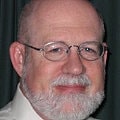 Co-Chair Walt Johnson Co-Chair Walt Johnson
EPRI |
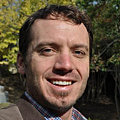 Co-Chair Denver Hinds Co-Chair Denver Hinds
Sacramento Municipal Utility District |
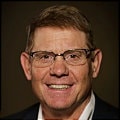 Co-Chair Bob Warden Co-Chair Bob Warden
Itron |
|
| 3:30 pm |
Next-Generation Potential Applications for Audience Consideration
Snapshot proposals with audience discussion of where OpenADR could be headed next to meet emerging market requirements. Topics to include:
1. Addition of Group Management – Addressing the challenges of scaling the assignment and management of groups of smart DER assets (DR resources, Solar PV, Battery Storage, EVs, etc.)
 Inclusion of Group Management Functions Inclusion of Group Management Functions
Ajit Anbiah Renjit, EPRI
Since 2012, EPRI facilitated a focus group of industry experts working to develop and publicly document standard functions for monitoring and managing groups of DERs to serve the needs of smart communities, microgrids, premise management systems, T&D systems and energy markets. This work has been coordinated with the IEC CIM (61968-5) and MultiSpeak groups to standardize the information models and methods. During this session, gain insight into the current status of the IEC 61968-5 standard, plans and progress for implementing it as part of OpenADR.
2. Extensions for IoT and Transactive Energy – The emerging role of TE and management of IoT devices
 The Importance of IoT and Transactive Energy for the SmartGrid The Importance of IoT and Transactive Energy for the SmartGrid
Michel Kohanim, Universal Devices
Services for IoT and Transactive Energy (TE) will be required to enable a truly smart grid and are being demonstrated in current CEC-sponsored research. TE is a natural evolution for, and fit with, OpenADR.
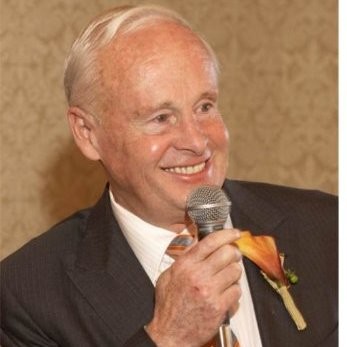 Transactive Energy, Energy Interoperation, and OpenADR Transactive Energy, Energy Interoperation, and OpenADR
Edward Cazalet,TeMix
The close relationship between TE, the OASIS Energy Interoperation standard, and OpenADR and possible next steps for implementation.
3. Focus on Communicating Prices – The emerging importance of communicating prices for energy efficiency, dynamic TOU rates, and DR
 Efficiency Credits for Heat Pump Water Heaters Efficiency Credits for Heat Pump Water Heaters
Pierre Delforge, Natural Resources Defense Council
The potential role of OpenADR in NRDC’s request to the California Energy Commission to grant efficiency credits for heat-pump water heaters that can automatically receive TOU schedules in California.
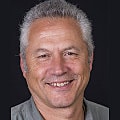 OpenADR for Everyone OpenADR for Everyone
Bruce Nordman, Lawrence Berkeley National Laboratory
Defining a limited subset of OpenADR for distributing time-varying prices could have great value for increasing the understanding and adoption of the standard by technology providers and users.
|
| 4:45 pm |
 Closing Remarks Closing Remarks
Rolf Bienert, OpenADR Alliance
|
| 5:00 - 6:00 pm |
Networking Reception
Hosted beverages and hors d'oeurves in the Exhibit Area
|
| Thursday, June 13, 2019 |
|---|
| To be determined |
Small Group Tours
(open to all registrants at no additional cost, subject to availability)
Target Corporation Retail Location Site Visit
Demonstration and overview of Target Corporation’s broader demand response program participation as well as experience with OpenADR2.0 in Pacific Gas and Electric Company and other markets and programs. Space will limited; please RSVP when you register.
or
Target Corporation Open House (open to public from 10 a.m. to 5:00 p.m.)
115 4th Street, San Francisco, CA 94103 (walking distance from Pacific Energy Center)
Located in America’s tech hub of San Francisco, Target Open House is a smart home demonstation site open to the general public. Start in the Interactive House to personalize your home, Stop by the Garage to see what’s new, and Finish up at the Playground to test things out. Details at targetopenhouse.com.
or
No longer accepting RSVPs for.... Tour of Lawrence Berkeley Laboratory's FLEXLAB
Overflow from Tuesday tour RSVPs, as needed. Address provided with RSVP confirmation (free shuttle from Berkeley downtown BART transit station)
The most advanced building efficiency test facility in the world, FLEXLAB® lets users develop and test energy-efficient building systems individually or as an integrated system, under real-world conditions. Our test beds can monitor and assess heating, ventilation, air conditioning, lighting, windows, building envelope, control systems, and plug loads, in any combination. They also offer an unparalleled ability to research building-to-grid distributed energy resource technologies and controls. Users can test alternatives and collect highly accurate, validated performance data for use in building design, utility customer incentive programs and integration into innovative operations software. Learn more at flexlab.lbl.gov/
|
|








 Co-Chair Janie Page
Co-Chair Janie Page Co-Chair Gabriel Taylor
Co-Chair Gabriel Taylor
 Co-Chair Jim Boch
Co-Chair Jim Boch 


 Co-Chair Carl Besaw
Co-Chair Carl Besaw Co-Chair Mark Martinez
Co-Chair Mark Martinez





 Co-Chair Walt Johnson
Co-Chair Walt Johnson Co-Chair Denver Hinds
Co-Chair Denver Hinds Co-Chair Bob Warden
Co-Chair Bob Warden



